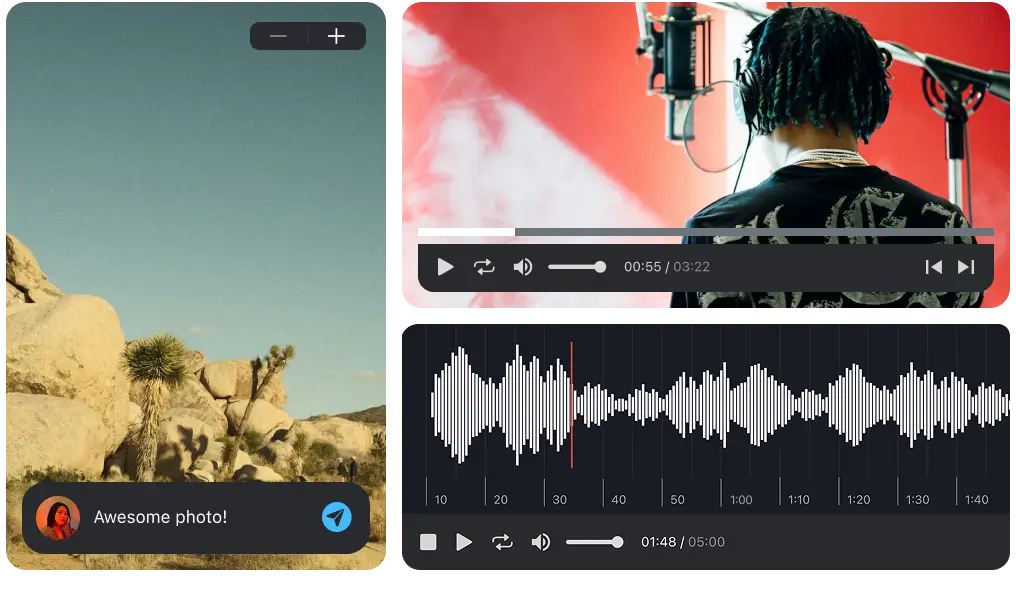What is a demo?
A demo, short for demonstration, is a rough or preliminary recording of a song or piece of music, typically used for promotion or evaluation. The purpose of a demo is to give an idea of how a finished song might sound. It is often used as a blueprint for the final version, providing a guide for the musicians, producers, and engineers involved in the recording process.
Demos can also be used to pitch songs to record labels, publishers, or other artists, providing a tangible representation of a songwriter's vision.
History of demos
The concept of the demo has been around almost as long as recorded music itself. In the early days of the music industry, songwriters would often record demos on simple, portable recording devices, capturing a basic representation of their songs to share with potential collaborators or buyers.
As technology advanced, so did the quality and complexity of demos. With the advent of multi-track recording in the mid-20th century, artists were able to create more sophisticated demos, layering multiple instruments and vocal parts to create a more complete picture of their musical ideas.
The role of demos in the modern music industry
With the proliferation of home recording technology and digital audio workstations, artists can now create high-quality demos in their own homes, without the need for expensive studio time.
The demos can then be shared with potential collaborators, producers, or record labels, providing a snapshot of the artist's musical vision. In some cases, these demos can even become the final version of a song, with additional production and mixing taking place in a professional studio.
Pibox makes this process simple. The platform’s waveform comments feature allows collaborators to leave time-stamped feedback directly on the demo, ensuring clear, actionable communication that eliminates confusion. This feature, combined with version control, makes it easy to manage different iterations of a track, ensuring that the best version is always accessible while maintaining a clear record of changes.
Whether you’re collaborating with a team or sharing a demo with a client, Pibox’s review & demo links allow for instant, secure sharing, saving time and avoiding the need for back-and-forth file transfers. The organized file management system ensures that all project files are easy to locate and manage, enhancing workflow and minimizing delays.
Easier, faster way to collaborate in real-time, collect feedback, manage reviews, share, and finish your projects effortlessly.
Types of demos
There are several different types of demos, each serving a different purpose within the music creation process. These include songwriter demos, artist demos, and production demos.
1. Songwriter demos
Songwriter demos are typically simple, stripped-down recordings that focus on the song's melody and lyrics. These demos are often recorded with just a single instrument and vocals, providing a clear and uncluttered representation of the song's core elements.
The purpose of a songwriter demo is to showcase the song itself, rather than the performance or production. As such, these demos are often used to pitch songs to other artists or record labels, or to provide a blueprint for a more fully-produced recording.
2. Artist demos
Artist demos are designed to showcase the artist's performance and unique style. These demos often include multiple instruments and vocal parts, and may even feature some basic production elements.
The purpose of an artist demo is to give listeners a sense of the artist's sound and style, and to demonstrate their potential as a recording artist. These demos are often used to secure record deals, or to attract the attention of managers, booking agents, or other industry professionals.
3. Production demos
Production demos are the most complex and fully-produced type of demo. These recordings often feature multiple instruments, vocal parts, and production elements, and are designed to give a clear picture of how the final version of a song might sound.
Production demos are often used as a guide during the recording process, providing a roadmap for the musicians, producers, and engineers involved. These demos can also be used to pitch songs to other artists or record labels, or to generate interest in a song or artist.








